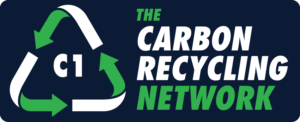Proposals are invited to write a Responsible & safe handling of C1 gases in microbiology labs guidance manual – Deadline to apply is Thursday 24 March 5pm
DEADLINE TO APPLY EXTENDED TO: THURSDAY 24 MARCH – 5PM
BACKGROUND
The Carbon Recycling Network’s key objective is to encourage the growth of Industrial Biotechnology in the UK. A critical component of our Network is to enable and facilitate a greater adoption, transition and deployment of bioconversion of C1 feedstock options across the innovation landscape. Currently there is a lack of implementation of C1 feedstock being generally operated across the UK’s TRL 1-4 biotechnology providers including academic and IB tech provider active companies, out with a handful of specific locations. Today more traditional and established biological heterotrophic carbon feedstocks are used by these biotechnology providers. We recognise that responsible and safe handling of C1 gases poses a barrier for such stakeholders to consider implementing C1 substrates due to the inherent flammability and/or toxicity aspects related to use of these alternative, more sustainable, feedstock options.
DESCRIPTION OF WORK
We are asking for applicants to provide to the Carbon Recycling Network an instructional framework and guidance manual to facilitate operation and practical use of these C1 gaseous feedstocks in typical existing microbiological laboratories. This framework and guidance manual should include:
- Recommendations/suggestions of additional safety equipment to de-escalate operational risk to better enable retro asset use of C1 feedstocks in typical biotechnology laboratories
- Process flow chart to provide decision-based assessment of risk profile associated with selected feedstock choices (e.g. CO2, CO, CH4, H2, air and mixtures thereof)
- Guidance on how to undertake a gap analysis to cost effectively utilise existing (widespread and typical) microbiological laboratory assets (eg shake incubators, CSTR fermenters)
- General practical considerations of DSEAR regulations with respect to use of C1 gaseous feedstocks in biotechnology
- Factual information on mixed gas flammability ratios and where safe operating compositional gas windows exists and where they do not
- Toxicity and exposure limit thresholds of C1 gaseous
- Guidance on laboratory options for introducing feedstock C1 gas delivery options and associated risk aspect of each
- Suggestions of specific safety products that can provide increase operational safety (i.e. ambient gas monitoring devices)
- Self-assessment questionnaire to facilitate users to evaluate risk profile ahead of roll out of C1 gaseous feedstock implementation within a typical microbiology laboratory
- Guidance for Failure Mode Effect Analysis (FMEA), scenario modelling of operational outcomes and where appropriate, best practice for remedial preventative actions that can readily be taken to ameliorate risk and improve process safety.
Successful applicant(s) will draft an initial report to the Carbon Recycling Network Management board for feedback and review, to be followed by administering a stakeholder engagement workshop. Outcomes of this workshop, feedback and review will be incorporated into a final report for publication release to be freely available to Network members.
Payment for this work will be set at £20K
The final report will need to be ready for publication by September 2022
HOW TO APPLY
Applicant(s) interested in conducting this report should submit:
- A 2-page A4 document demonstrating your expertise and how you can fulfil the requirements of this report
- Applications must be accompanied by a brief 1-page CV from applicants and any co-applicants
- Applications should be submitted to louise.dynes@nottingham.ac.uk by close of Thursday 24 March 2022
ELIGIBILTY
The Carbon Recycling Network membership & UKRI-BBSRC eligible
ENQUIRIES
Informal enquiries may be addressed to Carbon Recycling Network Manager:
Louise Dynes louise.dynes@nottingham.ac.uk


